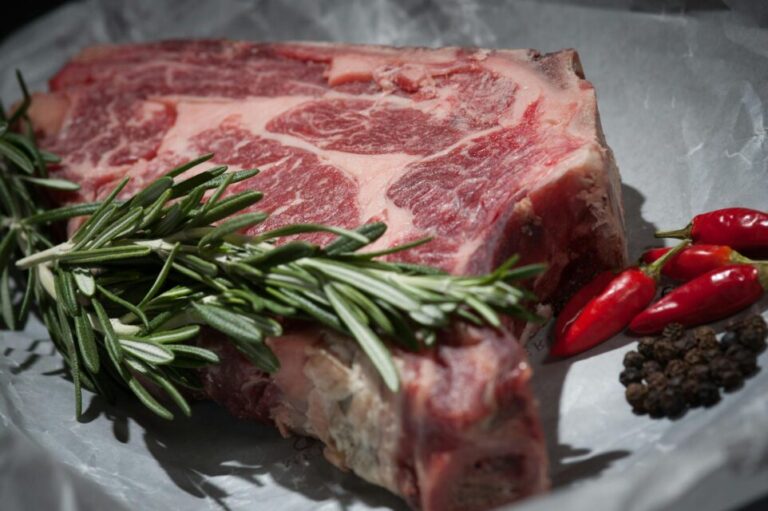Eating meat is the norm almost everywhere, right? Well, what else could you say? With an estimated 70 to 75% of the world’s population being regular meat consumers, the statement could almost be regarded as correct.
But here’s the surprise! A small fraction of the world’s population do not eat meat, not because they are vegetarians but because they are scared of it. Yes, they fear meat! This condition is called carnophobia and such people are regarded as carnophobes. This phobia is a relatively rare but debilitating condition that can significantly impact a person’s life.
In this article, we will explore the causes, symptoms, diagnosis and treatment options, as well as tips for coping with carnophobia.
What is Carnophobia?
Carnophobia is an irrational and persistent fear of meat. People who suffer this phobia may experience intense anxiety, panic attacks, nausea and even avoid situations where they may encounter meat. This phobia can be debilitating, and it can seriously impact a person’s quality of life.
This fear can extend to all types of meat, including red meat, poultry, fish, and even processed meat products like sausages or bacon.
Causes of Carnophobia
The exact causes of carnophobia are not fully understood but several factors are believed to contribute to its development:
1. Traumatic experiences
Negative experiences with meat can lead to the development of carnophobia. For example, someone who witnessed a butcher slaughtering animals as a child may develop carnophobia as a result. It could also be the death of a family member resulting from eating infected meat or meat product.
2. Cultural influences
In some cultures, meat consumption is prohibited or restricted, which can lead to the development of a fear of meat. Some examples are:
- Hinduism: most Hindus are vegetarians and for them, the cow is regarded as a sacred animal; therefore, beef is prohibited in most Hindu cultures.
- Jainism: the Jains are strict vegetarians who believe in non-violence against all beings. They do not also eat meat, eggs or dairy products.
- Seventh-day Adventists: This is a Christian denomination. They also follow a vegetarian diet. They believe that eating meat is unhealthy and that it is forbidden by the Bible.
- Rastafari: Rastafarians also follow a vegetarian diet. Their diet is known as Ital. They believe that eating meat is unhealthy and is forbidden by God.
3. Genetic predisposition
Some individuals, by means of their genetic makeup, may be susceptible to developing phobias, including carnophobia. Some instances are:
- Family history of anxiety disorders: people from families with history of anxiety disorders are likely to develop carnophobia.
- High neuroticism: neuroticism is often characterized by a tendency to experience negative emotions such as anxiety, fear, or sadness. Persons who have high neuroticism have high chances of developing phobias.
- Variations in the amygdala: The amygdala is a region of the brain that is involved in processing fear and anxiety. Studies have shown that individuals with carnophobia may have differences in the structure and function of the amygdala.
4. Personality traits
People’s personality traits can also contribute to how often they develop phobias and how much. For example, individuals with a high-harm avoidance personality are more likely to avoid situations that they perceive as threatening or dangerous.
This can lead them to avoid eating meat, even if they do not have a specific fear of meat. This group of people can desist from meat consumption simply because they do not want to be a part of the harm inflicted on meat producers during slaughter.
Another group of people here are perfectionists! You might wonder how perfectionism can lead to developing carnophobia. Well this is how. Perfectionists always strive for perfection and are always critical of themselves and others whenever the standard of perfection is not met.
This can cause them to develop a fear of making mistakes, which can include the fear of eating meat and getting sick. A perfectionist may develop carnophobia by simply knowing that someone’s autopsy results showed that the person ate infected meat.
The next category are people with high disgust sensitivity. This group of people are more likely to develop a fear of meat as a result of being disgusted by certain things that are associated with it. These things might be blood, gore, bodily fluids, etc.
While not everyone with these personality traits will develop carnophobia, these traits have the ability to increase the risks of developing this phobia, especially when in combination with environmental factors such as a traumatic experience.
Many of the cases of carnophobia are traceable to the above causes, but there are some exceptions, where the phobia may develop for seemingly no reason at all.
Symptoms of Carnophobia
Like every phobia, carnophobia also has its symptoms. Individuals with carnophobia may experience a range of physical, psychological and behavioral symptoms when confronted with meat or meat products. These symptoms can vary in severity from person to person.
some common signs include:
- Intense fear or anxiety when seeing or thinking about meat
- Avoidance of meat and meat products or situations where meat may be present, such as grocery stores or restaurants,
- Physical symptoms such as sweating, trembling, or nausea when exposed to meat
- Panic attacks, such as rapid breathing, sweating, and heart palpitations
- Difficulty eating, swallowing or even socializing in situations where meat is present
- Feeling disgusted by the sight or smell of meat
Diagnosis of Carnophobia
The diagnosis of carnophobia is done by a mental health professional, which could be a psychiatrist or psychologist. To diagnose the condition, thorough examination and evaluation are conducted on the individual’s symptoms, history, and current life situation.
Some criteria that can help in the diagnosis of carnophobia include:
- Persistent and intense fear of meat
- Avoidance of meat or meat products
- Whether or not the fear or avoidance causes significant distress or impairment in daily life
- Whether or not the fear is better explained by another mental disorder.
Treating Carnophobia
Here’s the good news: carnophobia can be treated! It’s treatment involves a combination of psychotherapy and medication.
- Psychotherapy
- Cognitive Behavioral Therapy (CBT):
Cognitive behavioral therapy (CBT): It is a form of psychotherapy that has been found to be effective in treating carnophobia. It focuses on identifying and changing the negative thoughts and beliefs that contribute to the phobia. In the context of carnophobia, CBT may involve:
- Challenging negative thoughts: Here, the therapist helps the individual identify and challenge the irrational or exaggerated thoughts they have about meat. For example, the individual may believe that all meat is contaminated or that eating meat will make them sick. The therapist will help them examine the evidence for these thoughts and develop more realistic and balanced beliefs.
- Exposure therapy: Gradual exposure to meat is a key component of CBT for carnophobia. The therapist will guide the individual through a series of carefully controlled exposures, starting with small steps and gradually increasing the intensity and duration of the exposure. This helps the individual learn that their fear is manageable and that they can cope with being around meat.
- Relaxation techniques: CBT also teaches relaxation techniques, such as deep breathing and meditation, to help the individual manage anxiety and panic symptoms associated with carnophobia.
Medication: In some cases, medication may be prescribed to help manage the anxiety and panic symptoms associated with carnophobia. The most commonly used medications for carnophobia are antidepressants and anti-anxiety medications.
- Antidepressants: Selective serotonin reuptake inhibitors (SSRIs) and serotonin-norepinephrine reuptake inhibitors (SNRIs) are types of antidepressants that can help reduce anxiety and improve mood. They may be particularly helpful for individuals with carnophobia who also experience symptoms of depression or anxiety disorders.
- Anti-anxiety medications: Benzodiazepines are a type of anti-anxiety medication that can provide quick relief from anxiety and panic symptoms.
These medications, however, should be used with caution and for short periods of time due to their potential for causing addiction and side effects.
It is also important to note that medication is not a cure for carnophobia, but it can be an effective way to manage the symptoms and improve quality of life. Medication should be used in combination with psychotherapy, such as cognitive behavioral therapy, for the best results.
Coping Strategies for Individuals with Carnophobia
In addition to professional treatment, people with carnophobia can make use of some coping strategies to manage their symptoms:
- Avoidance: Avoid eating or being around meat when feeling anxious. This strategy is useful for providing temporary relief, but it can also reinforce the fear in the long run. Gradually facing your fear in a safe and controlled environment can help overcome avoidance.
- Relaxation techniques: Practising relaxation techniques like deep breathing exercises, meditation, or yoga can help reduce anxiety and improve relaxation.
- Joining support groups: While this may sound a bit odd, joining support groups for individuals with phobias can help create a sense of community and support. It also provides an opportunity to share experiences and learn from others, which can be beneficial.
- Lifestyle changes: Maintaining a healthy lifestyle, including regular exercise and a balanced diet (that includes other sources of protein like beans and nuts), can help improve overall well-being and reduce anxiety.
- Track it: Keeping a journal to track your progress and identify triggers can also help in dealing with carnophobia.
Conclusion
In conclusion, carnophobia is a real phobia and may also be regarded as a complex. It can have serious impacts on a person’s life. However, with the right treatment and coping strategies, people with carnophobia can learn to manage their fears and improve the quality of their lives, leading to a fulfilling and happy life.


